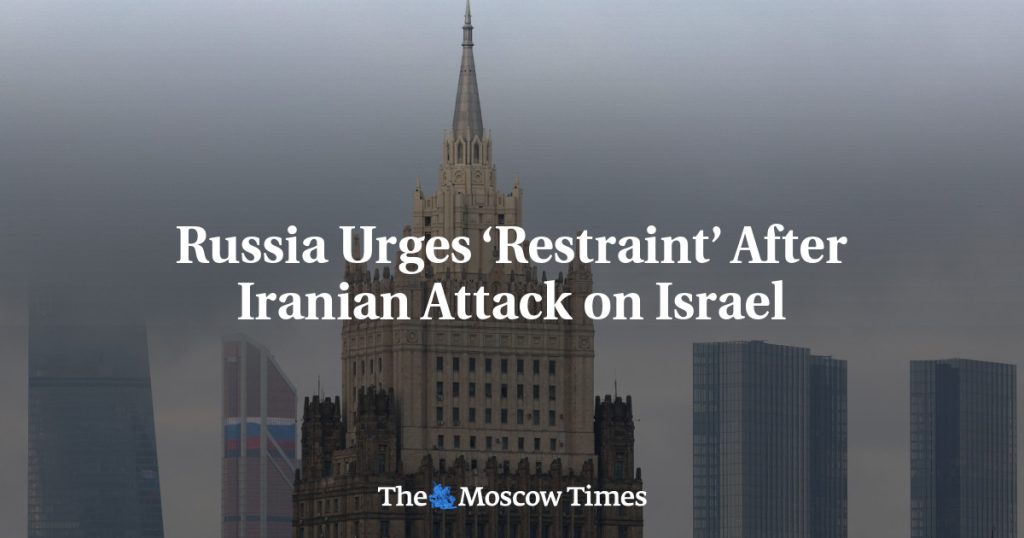Russia is calling for restraint after Iran launched a missile and drone attack on Israel, urging regional states to solve problems through political and diplomatic means. The Russian Foreign Ministry expressed extreme concern over the escalating situation in the Middle East, warning that unresolved crises could lead to increased instability. Foreign Minister Sergei Lavrov held talks with his Iranian counterpart, condemning an Israeli strike in Syria that killed Iranian generals. Russia has criticized Israel’s conduct in the Gaza conflict and has been strengthening ties with Iran, causing a strain in its relations with Israel.
The Russian Foreign Ministry’s statement highlights the ongoing tension in the Middle East, particularly in the Palestinian-Israeli conflict zone. Russia has warned of the consequences of failing to address these crises, emphasizing the importance of political and diplomatic solutions. Moscow’s call for restraint comes as Iran’s attack on Israel raises concerns about further escalation and instability in the region. The phone talks between Lavrov and Amir-Abdollahian reflect Russia’s efforts to navigate complex relationships with major powers in the Middle East.
Russia’s condemnation of Israel’s actions in Syria and Gaza underscores its alignment with Iran in the face of conflict in the region. Moscow’s decision to strengthen military and political ties with Iran signals a shift in its relationships, potentially straining its long-standing relationship with Israel. The Russian Foreign Ministry’s statement reflects growing concerns about the impact of unresolved crises in the Middle East on regional stability and security. By urging all sides to show restraint and pursue diplomatic solutions, Russia is seeking to prevent further escalation and violence.
Despite its attempts to maintain relations with all major powers in the Middle East, Russia’s support for Iran in the face of Israeli actions has strained its ties with Israel. The ongoing conflict in Gaza and Syria has highlighted competing interests and alliances in the region, leading to increased tensions and instability. Russia’s condemnation of Israeli strikes in Syria and its calls for political and diplomatic solutions indicate a shift in its approach to Middle East conflicts. By aligning itself with Iran, Russia is positioning itself as a key player in the region, potentially reshaping the balance of power.
Russia’s efforts to address the escalating situation in the Middle East reflect its desire to prevent further violence and instability. By condemning Israeli actions and calling for restraint, Moscow is sending a clear message to regional actors to pursue peaceful solutions to ongoing conflicts. The phone talks between Lavrov and Amir-Abdollahian illustrate Russia’s attempts to engage with key players in the region in order to de-escalate tensions and promote dialogue. Despite the challenges and complexities of the Middle East conflicts, Russia remains committed to finding political and diplomatic solutions to prevent further escalation and violence.
In conclusion, Russia’s call for restraint and diplomatic solutions in response to Iran’s attack on Israel reflects its commitment to addressing ongoing conflicts in the Middle East. The Russian Foreign Ministry’s statement highlights the need for regional states to work together to resolve crises and prevent further instability. By strengthening ties with Iran and condemning Israeli actions, Russia is positioning itself as a key player in the region, potentially reshaping the balance of power. Despite the challenges and complexities of the conflicts in the Middle East, Moscow remains committed to finding peaceful solutions and maintaining stability in the region.


